Affiliate Marketing Vs Digital Marketing: Get To Know Which Is Right For You?
Are you curious about the world of online marketing? Well, you’re in luck because today we’re diving into the exciting realm of affiliate marketing vs digital marketing!
Now, you might be wondering, what exactly is the difference between these two strategies? Affiliate marketing is like having your own personal sales team, where you earn a commission for promoting other people’s products. On the other hand, digital marketing involves using various online channels to promote and sell products or services directly.
But hold on, there’s more to it! We’ll explore the unique advantages and strategies of each approach, so you can determine which path is right for you. So, let’s buckle up and embark on this digital marketing adventure!
Whether you’re a budding entrepreneur or just curious about the world of online advertising, this comparison will shed light on the exciting worlds of affiliate marketing and digital marketing. Get ready to unlock the secrets behind successful online businesses, and discover the power of these two marketing strategies! So, without further ado, let’s dive in!
Looking to boost your online presence but not sure whether to focus on affiliate marketing or digital marketing? Let’s compare these two strategies based on their features:
| Affiliate Marketing | Digital Marketing |
| Performance-based | Varied strategies |
| Lower upfront costs | Higher initial investment |
| Collaborative partnerships | In-house control |
| Specific audience targeting | Broad reach potential |
By considering these features, you can make an informed decision on which strategy aligns best with your goals and resources.

Key Takeaways: Affiliate Marketing Vs Digital Marketing
2. Digital marketing involves promoting products or services using various online channels like social media, email, and search engines.
3. Both affiliate marketing and digital marketing can be used to earn money online.
4. In affiliate marketing, you earn a commission for each sale made through your referral link.
5. Digital marketing encompasses a wider range of strategies, including SEO, content marketing, and paid advertising.
Comparing Affiliate Marketing Vs Digital Marketing
Affiliate marketing and digital marketing are two popular strategies used by businesses to promote their products and services online. While both aim to reach a target audience and generate sales, they employ different tactics and have unique advantages. In this article, we will compare the key features, user experience, pros and cons, and price points of affiliate marketing and digital marketing, to help you determine which strategy is better suited for your business.
Overview of Affiliate Marketing
Affiliate marketing is a performance-based marketing strategy where businesses partner with affiliates who promote their products or services in exchange for a commission. Affiliates can include bloggers, influencers, or website owners who have an existing audience that aligns with the business’s target market.
When an affiliate successfully refers a customer to the business and a purchase is made, the affiliate earns a commission. This model allows businesses to leverage the reach and influence of affiliates, while affiliates can monetize their online presence.
Affiliate marketing offers a cost-effective way for businesses to increase brand visibility, drive traffic to their website, and boost sales. By partnering with affiliates, businesses can tap into their existing audiences and benefit from their trust and credibility.
Overview of Digital Marketing
Digital marketing encompasses a range of strategies and tactics used to promote a business’s products or services online. It includes various channels such as search engine optimization (SEO), social media marketing, email marketing, content marketing, and paid advertising.
Unlike affiliate marketing, which relies on external partners to promote the business, digital marketing is typically conducted in-house or with the help of a digital marketing agency. It allows businesses to have full control over their marketing efforts and tailor their strategies to match their specific goals and target audience.
With digital marketing, businesses can reach a wider audience, build brand awareness, engage with customers, and drive conversions. The flexibility and scalability of digital marketing make it suitable for businesses of all sizes and industries.
Key Features Compared
Now, let’s dive into the key features of affiliate marketing and digital marketing and compare the two strategies.
1. Target Audience Reach
Affiliate Marketing: With affiliate marketing, businesses can leverage the existing audiences of their affiliates to reach a wider pool of potential customers. Affiliates typically specialize in niche markets, allowing businesses to target specific demographics effectively.
Digital Marketing: Digital marketing also offers a wide reach, but it requires businesses to build their own audience or utilize targeted advertising. By leveraging SEO, social media platforms, and paid ads, businesses can reach a large and diverse audience.
2. Cost-Effectiveness
Affiliate Marketing: One of the key advantages of affiliate marketing is its cost-effectiveness. Businesses only pay affiliates when they successfully refer a customer who makes a purchase. This performance-based payment structure ensures that businesses only spend money when they achieve tangible results.
Digital Marketing: The cost of digital marketing can vary depending on the specific strategies employed. While some channels like social media marketing and content marketing can be relatively affordable, others like paid advertising can require a significant investment. However, digital marketing allows for better control over budget allocation and targeted spending.
3. Credibility and Trust
Affiliate Marketing: Affiliates often have established credibility and trust with their audience, making their recommendations more influential. When an affiliate promotes a product or service, their audience is more likely to trust their opinion and make a purchase.
Digital Marketing: Building credibility and trust through digital marketing requires consistent efforts to create valuable content, engage with customers, and establish a strong online presence. While it may take time to build trust, digital marketing allows businesses to directly connect with their audience and develop relationships over time.
4. Control and Customization
Affiliate Marketing: While affiliate marketing allows businesses to tap into the reach of affiliates, they have limited control over the promotion and messaging. Businesses must rely on affiliates to create compelling content and effectively promote their products or services.
Digital Marketing: With digital marketing, businesses have full control over their promotional efforts. They can tailor their messaging, branding, and content to align with their overall marketing strategy. This control allows for consistent branding and messaging across all digital channels.
5. Tracking and Analytics
Affiliate Marketing: Affiliate marketing relies heavily on tracking and analytics to measure the success of affiliate campaigns. By using unique tracking links and codes, businesses can attribute sales to specific affiliates and determine the return on investment (ROI) for each affiliate partnership.
Digital Marketing: Digital marketing provides robust tracking and analytics tools that allow businesses to measure the success of their campaigns. From website analytics to conversion tracking, businesses can gain valuable insights into their marketing performance and make data-driven decisions.
6. Scalability
Affiliate Marketing: Affiliate marketing offers scalability as businesses can partner with multiple affiliates to expand their reach and increase their chances of driving sales. It allows businesses to tap into new markets and demographics through their affiliate network.
Digital Marketing: Similarly, digital marketing offers scalability as businesses can utilize various channels and tactics to maximize their online presence. With the ability to target different audience segments and adapt strategies based on performance, businesses can scale their digital marketing efforts as needed.
User Experience
The user experience plays a crucial role in both affiliate marketing and digital marketing. A positive user experience can enhance brand perception, increase customer satisfaction, and drive customer loyalty.
In affiliate marketing, the user experience is influenced by both the affiliate and the business. Affiliates must create compelling content, provide accurate and relevant information about the product or service, and ensure a smooth referral process. The business must also deliver a seamless experience from the moment a user clicks on an affiliate’s link to the completion of the purchase.
Digital marketing encompasses various touchpoints where user experience matters, such as website design, mobile optimization, user-friendly navigation, responsive customer support, and personalized communication. By providing a seamless and enjoyable user experience, businesses can enhance their online presence and build long-term relationships with their customers.
Pros and Cons
Affiliate Marketing Pros:
- Cost-effective as businesses only pay for results
- Access to niche audiences through affiliates
- Established credibility and trust through affiliate recommendations
Affiliate Marketing Cons:
- Limited control over promotion and messaging
- Reliance on affiliates to create compelling content
- Potential for fraudulent practices if not properly managed
Digital Marketing Pros:
- Full control over marketing efforts and messaging
- Ability to target a wide range of audiences
- Flexibility to adapt strategies based on performance
Digital Marketing Cons:
- Potential for higher costs, especially with paid advertising
- Time-consuming to build a strong online presence and credibility
- Requires expertise and ongoing monitoring to optimize campaigns
Price Comparison
The cost of affiliate marketing and digital marketing can vary widely depending on various factors such as the size of the affiliate network, the commission structure, and the specific digital marketing channels utilized.
Affiliate marketing typically requires businesses to allocate a percentage of each sale as a commission to affiliates. The commission rate can range from 5% to 30% or more, depending on the industry and product type.
Digital marketing costs can vary significantly depending on the specific strategies employed. For example, search engine optimization and content marketing may require hiring professionals or agencies, while social media marketing and email marketing can be relatively affordable with little to no additional costs.
Ultimately, the cost of both strategies will depend on the business’s goals, resources, and the specific campaigns implemented.
Comparison Table
| Feature | Affiliate Marketing | Digital Marketing |
|---|---|---|
| Target Audience Reach | Reach niche audiences through affiliates | Reach a wide audience through various channels |
| Cost-Effectiveness | Performance-based payment structure | Variable costs depending on strategies |
| Credibility and Trust | Affiliates with established credibility | Requires consistent efforts to build trust |
| Control and Customization | Reliant on affiliates for promotion | Full control over marketing efforts |
| Tracking and Analytics | Track sales attributed to affiliates | Robust tracking and analytics tools |
| Scalability | Expand reach through multiple affiliates | Utilize various channels and tactics |
Which is Better – Affiliate Marketing vs. Digital Marketing?
When it comes to determining which strategy is better – affiliate marketing or digital marketing – there is no one-size-fits-all answer. The choice depends on the specific goals, resources, and target audience of each business. However, here are three reasons why one strategy may be more suitable for certain businesses:
- If a business wants to tap into niche markets and leverage the reach and influence of existing affiliates, affiliate marketing may be the better choice. By partnering with affiliates who have established credibility and trust with their audience, businesses can effectively target specific demographics and benefit from the power of recommendations.
- On the other hand, if a business aims for full control over their marketing efforts, messaging, and branding, digital marketing may be the preferred option. Digital marketing allows businesses to tailor their strategies, target wider audiences, and have complete control over their promotional efforts. It also provides robust tracking and analytics tools to measure performance and make data-driven decisions.
- The scalability of both strategies should also be considered. Affiliate marketing offers the possibility of expanding reach through multiple affiliates, allowing businesses to tap into new markets and demographics. Digital marketing, on the other hand, provides flexibility and scalability through various channels and tactics, enabling businesses to adapt their strategies based on performance and target different audience segments.
In conclusion, there is no definitive winner in the battle of affiliate marketing vs. digital marketing. Both strategies have their unique advantages and can be highly effective when implemented correctly. Ultimately, the choice depends on the specific goals, resources, and target audience of each business. It is essential to analyze these factors carefully and determine which strategy aligns best with the overall marketing objectives.
Frequently Asked Questions
Welcome to our frequently asked questions section, where we will explore the differences between affiliate marketing and digital marketing. If you’re curious about how these two marketing strategies differ and which one might be right for your business, you’ve come to the right place. Let’s dive in!
Question 1: What is the main difference between affiliate marketing and digital marketing?
Affiliate marketing is a type of digital marketing, but it focuses on earning commissions for promoting other people’s products or services. It involves partnering with companies as an affiliate and earning a percentage of the sales you generate through your promotional efforts. On the other hand, digital marketing encompasses a broader range of strategies and tactics, including search engine optimization (SEO), social media marketing, email marketing, content marketing, and more. It involves using various digital channels to promote products, build brand awareness, and increase sales.
In summary, affiliate marketing is a subcategory of digital marketing that specifically involves earning commissions for promoting others’ products, while digital marketing is a broader term that encompasses a wide range of online marketing strategies.
Question 2: Which marketing strategy is more cost-effective, affiliate marketing, or digital marketing?
Both affiliate marketing and digital marketing can be cost-effective, but it depends on your specific goals and resources. Affiliate marketing can be more cost-effective because you only pay for results, meaning you only pay when a sale is made through your affiliate efforts. Moreover, you don’t have to invest in creating your own products or services. However, it’s important to note that building a successful affiliate marketing business requires time and effort to establish partnerships, create content, and drive traffic to your affiliate links.
On the other hand, digital marketing encompasses various tactics that can have different costs associated with them. For example, running paid advertisements or hiring a digital marketing agency can be more expensive than starting an affiliate marketing business on your own. However, digital marketing allows for greater control over your brand and messaging, and it can have a more long-term impact on your business’s bottom line.
Question 3: How do the target audience and reach differ between affiliate marketing and digital marketing?
In affiliate marketing, the target audience and reach largely depend on the type of products or services you are promoting. As an affiliate, you have the flexibility to choose your target audience and customize your marketing efforts accordingly. However, your reach may be limited to the audience you can attract to your website, blog, or social media platforms.
On the other hand, digital marketing offers a wider reach, especially when it comes to tactics like social media marketing and paid advertising. You can target specific demographics, interests, and behaviors to reach a larger audience through platforms like Facebook, Instagram, or Google Ads. Additionally, digital marketing allows you to analyze data and make informed decisions to further optimize your targeting and reach strategies.
Question 4: Which marketing strategy provides better control over branding and messaging?
Digital marketing provides better control over branding and messaging compared to affiliate marketing. With digital marketing, you have the freedom to develop your own brand voice, visual identity, and messaging that aligns with your business goals and target audience. You can build a consistent brand identity across various digital channels, such as your website, social media profiles, and email campaigns.
In affiliate marketing, while you can create personalized content and promote products and services that resonate with your audience, you have less control over the overall branding and messaging. Your focus is primarily on driving sales for the products or services you are affiliated with, rather than shaping the brand image itself. However, successful affiliates can still build a personal brand within their niche and establish trust with their audience.
Question 5: Which marketing strategy is better for long-term business growth?
Both affiliate marketing and digital marketing can contribute to long-term business growth, but in different ways. Affiliate marketing can provide a steady source of passive income and can be a great addition to a comprehensive digital marketing strategy. However, it often relies on external factors, such as changes in affiliate programs or product availability, which may impact your revenue in the long run.
Digital marketing, on the other hand, allows you to build a strong online presence, attract and engage your target audience, and develop relationships with customers and prospects. By consistently implementing various digital marketing tactics, you can create a sustainable and scalable business that continues to grow over time. It provides you with more control and flexibility to adapt to changes in the market and explore new opportunities for expansion.
Affiliate Marketing Vs Digital Marketing (The Differences)
Summary:
Now that we’ve explored affiliate marketing and digital marketing, let’s sum up what we’ve learned. Affiliate marketing is when people promote products and earn a commission for each sale they make. Digital marketing, on the other hand, involves promoting products through online advertising and other digital methods. Both have their advantages and can help businesses reach more customers.
In affiliate marketing, you can make money by promoting products you love and believe in. It’s a great way to earn income without creating your own products. On the other hand, digital marketing allows businesses to use various online platforms to reach a wider audience and grow their customer base. It involves strategies like social media advertising, search engine optimization (SEO), and email marketing.
When it comes to choosing between affiliate marketing and digital marketing, it ultimately depends on your interests and goals. If you enjoy promoting products and working with different brands, affiliate marketing might be a good fit for you. But if you’re passionate about digital technology and want to help businesses grow their online presence, digital marketing could be the way to go.
Remember, both affiliate marketing and digital marketing require hard work and dedication. Success doesn’t happen overnight, but with perseverance, you can achieve your goals. It’s essential to stay updated on the latest marketing trends and strategies to stay ahead of the game. So, no matter which path you choose, keep learning, growing, and chasing your dreams in the exciting world of marketing!

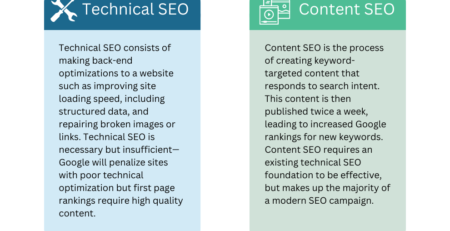
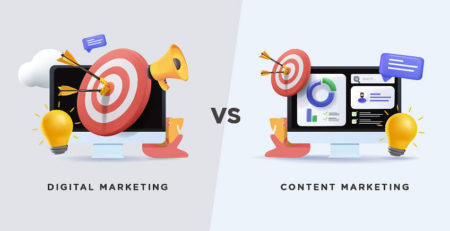
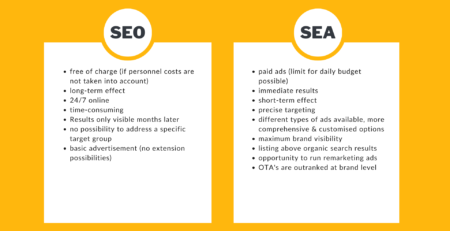


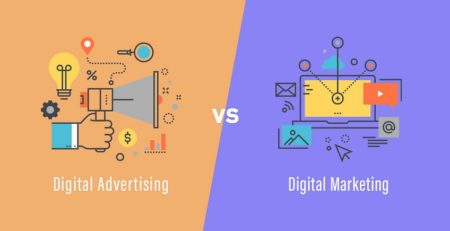
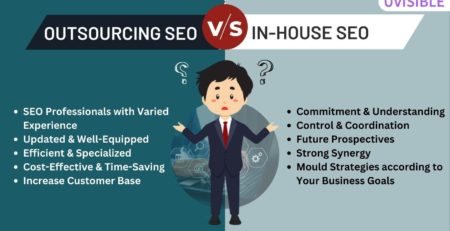
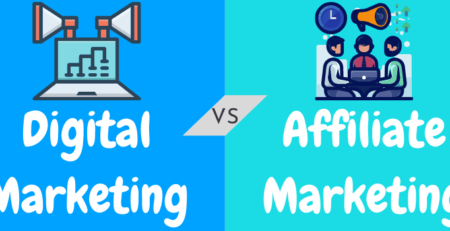
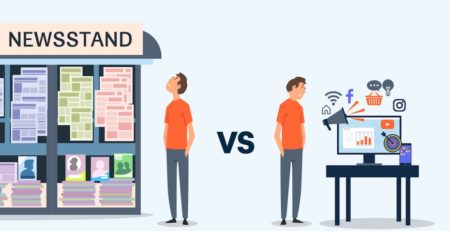
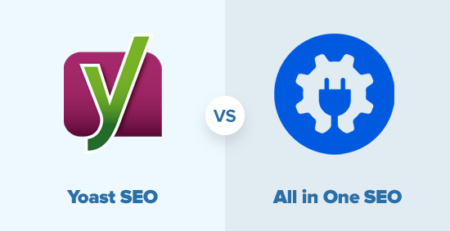
Leave a Reply